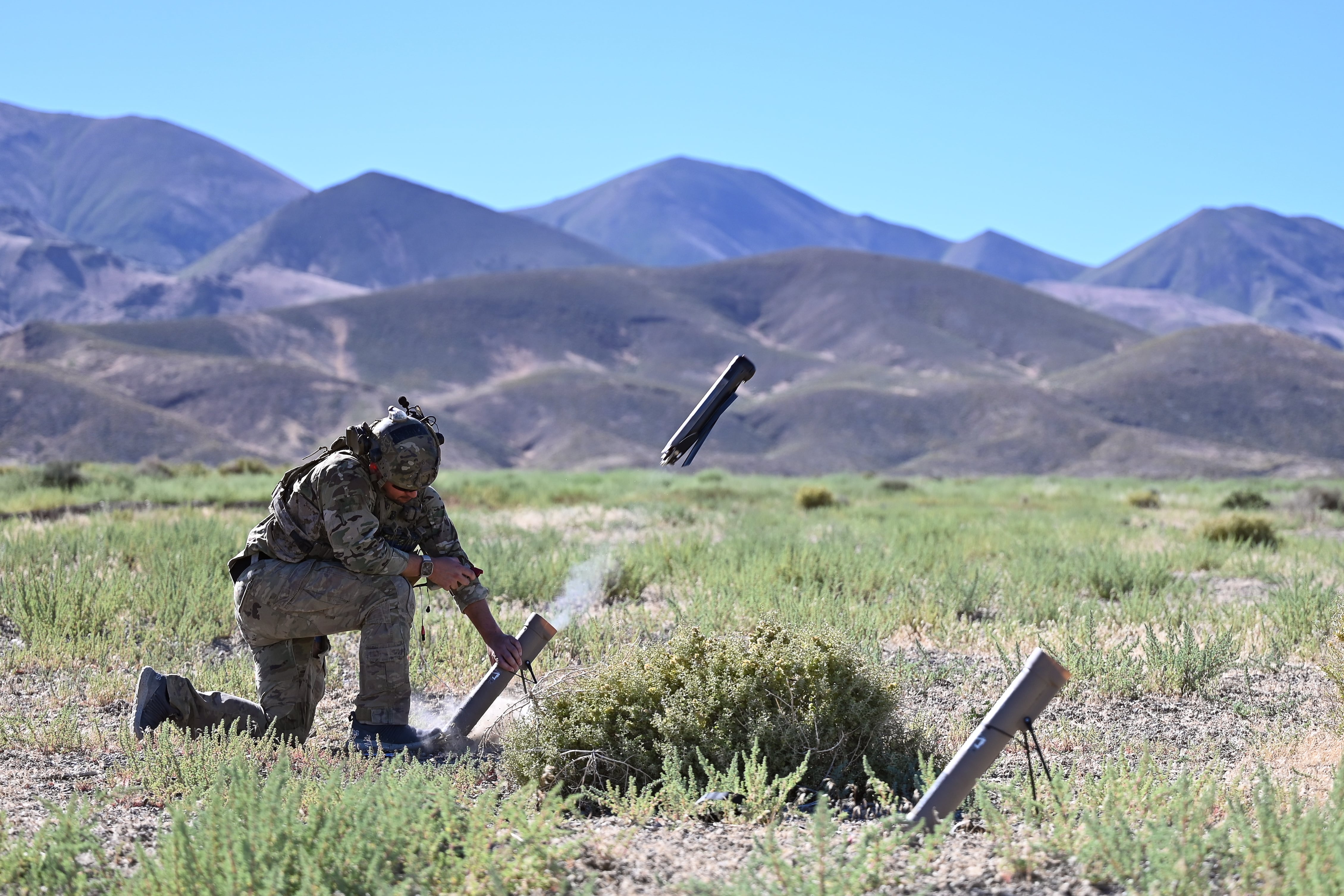WASHINGTON — The U.S. Army kicked off a program to quickly provide soldiers a portable, tank-busting drone, amid ballooning use of similar equipment in the Russia-Ukraine war.
The service’s Program Executive Office Soldier, or PEO Soldier, this month announced the Low Altitude Stalking and Strike Ordnance venture, or LASSO, and a responsibility for lethal unmanned systems, adding that the need for such gear is “urgent.”
LASSO systems can be carried by troops, use a tube for launches and are strapped with a lethal payload, according to the office, which specializes in equipment including uniforms, body armor, night-vision devices and guns. The kit also features an electro-optical and infrared sensor, precision flight controls and the ability to track and engage far-off targets, it said.
The one-way, or “suicide” drone is tailored for infantry brigade combat teams and is expected to be in soldiers’ hands in 2024. Feedback and updates will follow.
“As the Army prepares to engage near peer threats in a conventional conflict, it was evident that our infantry brigade combat teams are in need of additional organic anti-tank capabilities,” Jason Amadi, an office spokesperson, told C4ISRNET July 27. “PEO Soldier’s expertise is supporting the infantry brigade combat teams. No one is better suited to develop and field this capability to IBCT soldiers.”
The Army is still finalizing details related to contracts with defense industry, Amadi said, but the plan is “to focus initial phases of the LASSO program on currently available systems.”
Bomb-laden drones have proven popular in the Russia-Ukraine war, with the clashing militaries attempting to scout, coordinate and attack from deeper and safer distances.
“Both sides are leaning heavily on FPV-type drones — light, portable, kamikaze, expendable systems,” Samuel Bendett, an expert at the Center for Naval Analyses, told C4ISRNET. “There’s a need, right now, for a large number of FPV-type drones. But there’s also a need to advance that development further out, beyond just the immediate line of contact, to where these drones can strike in the rear.”
The U.S. has promised Kyiv hundreds of AEVEX Aerospace Phoenix Ghost and AeroVironment Switchblade loitering munitions. An aid package announced July 25 also included pocket-sized Black Hornet surveillance drones from Teledyne FLIR.
Colin Demarest was a reporter at C4ISRNET, where he covered military networks, cyber and IT. Colin had previously covered the Department of Energy and its National Nuclear Security Administration — namely Cold War cleanup and nuclear weapons development — for a daily newspaper in South Carolina. Colin is also an award-winning photographer.




